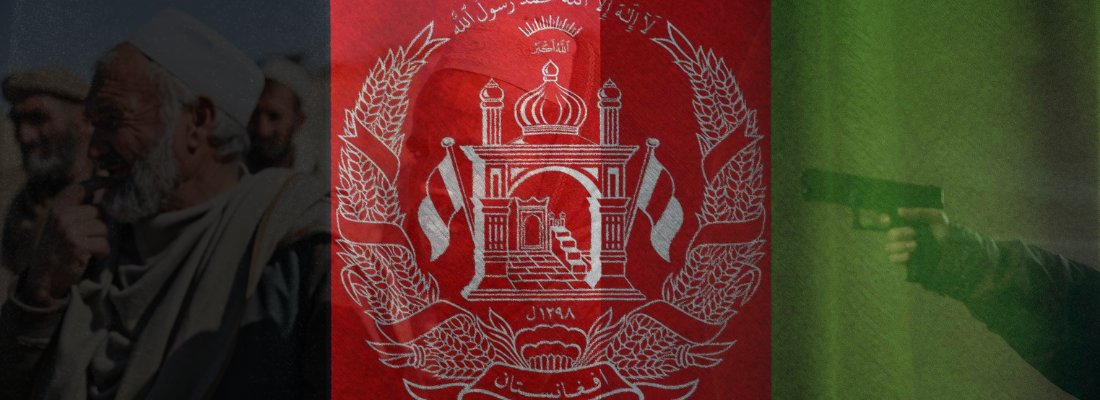Afghanistan: IBAHRI condemns public executions
Wednesday 20 March 2024

The International Bar Association’s Human Rights Institute (IBAHRI) without reservation condemns the public executions by the Taliban in Afghanistan. Three people were executed by gunfire in two sports stadiums in the presence of de facto court officials and members of the public during the last week of February 2024.
The first double execution took place on 22 February 2024 at a football stadium in the city of Ghazni. The two men, Syed Jamal and Gul Khan, who were convicted by the Taliban’s de facto Supreme Court of the murder of two victims in separate cases, were reportedly shot to death by the relatives of the victims. The de facto Supreme Court is reported to have stated in its ruling that three lower courts and the Taliban’s supreme leader had ordered the executions in retribution for the men’s purported crimes. The third execution was held on 26 February 2024 in a sports stadium in the city of Sheberghan. Nazar Muhammad, who was convicted of a murder in January 2022, was executed by gunfire in front of thousands of people, including the victim’s family.
IBAHRI Co-Chair and immediate past Secretary General of the Swedish Bar Association, Anne Ramberg Dr Jur hc, commented: ‘The recent public executions in Afghanistan, with three in less than one week, are appalling. The IBAHRI opposes the death penalty in all circumstances. Executions in public contribute an additional cruel, inhumane, and degrading layer to an already barbaric punishment, which is in violation of international human rights law. It also causes trauma for, and has a brutalising effect on, the witnesses of the execution and society as a whole.’
As a State party to the International Covenant on Civil and Political Rights (ICCPR), Afghanistan has signed up to recognise the inherent dignity and the equal and inalienable rights of all members of the human family as the foundation of freedom, justice and peace in the world. Article 6 of the ICCPR enshrines the right to life, while Articles 14 and 7 protect the right to a fair trial and prohibit torture and cruel, inhuman or degrading treatment or punishment respectively. The UN Human Rights Committee noted in its General Comment No 36 that public executions are contrary to Article 6 of the ICCPR, rendering the execution arbitrary in nature and also in violation of the right to life.
Similarly, the imposition of the death penalty after violation of fair trial and due process guarantees, under Article 14 of the ICCPR, renders the sentence arbitrary in nature, constituting a violation of the right to life. According to the UN Special Rapporteur on the situation of human rights in Afghanistan, the radical disruptions to the legal architecture of Afghanistan since August 2021 have ‘compromised international due process obligations, including, inter alia, the presumption of innocence, independence of the judiciary and the right to legal defence’.
IBAHRI Co-Chair, Mark Stephens CBE, stated: ‘The Taliban’s repeated use of public executions and disregard for fair trial and due process rights within the de facto judicial system are extremely concerning. These violations of international human rights law cannot be tolerated. The IBAHRI calls on the de facto authorities to introduce an immediate moratorium on executions and to take steps towards the abolition of the death penalty.’
Public executions were common during the Taliban’s previous rule between 1996–2001. Since the Taliban’s return to controlling Afghanistan in 2021, five people have reportedly been publicly executed. Prior to the three recent executions, the last public execution was allegedly carried out in June 2023 in front of approximately 2,000 people. In 2022, the Taliban’s supreme leader ordered judges to fully implement all aspects of Sharia law, including qisas (retribution in kind) punishments of which public execution is one.
ENDS
Contact: IBAHRI@int-bar.org
Notes to the Editor
-
Click here to download a PDF of: IBAHRI Council Resolution on the Abolition of the Death Penalty
- Related material:
-
The International Bar Association’s Human Rights Institute (IBAHRI), established in 1995 under Founding Honorary President Nelson Mandela, is an autonomous and financially independent entity, working to promote, protect and enforce human rights under a just rule of law, and to preserve the independence of the judiciary and the legal profession worldwide.
- Find the IBAHRI on social media here:
-
The International Bar Association (IBA), the global voice of the legal profession, is the foremost organisation for international legal practitioners, bar associations and law societies. Established in 1947, shortly after the creation of the United Nations, with the aim of protecting and promoting the rule of law globally, it was born out of the conviction that an organisation made up of the world's bar associations could contribute to global stability and peace through the administration of justice.
- Find the IBA on social media here:
Website page link for this news release:
Short link: www.tinyurl.com/2s42xm4v
Full link: www.ibanet.org/Afghanistan-IBAHRI-condemns-public-executions
